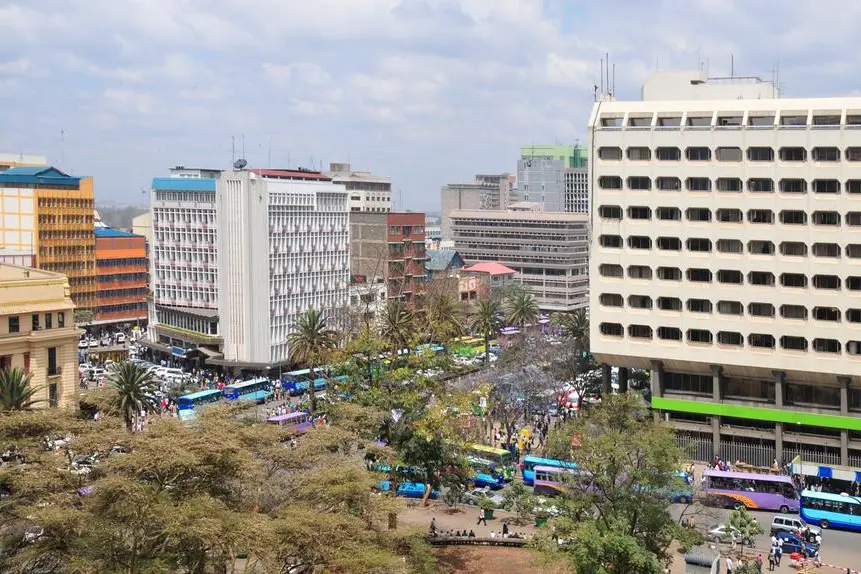PHOTO
Nearly two decades after its conception, Kenya’s dream of building a world-class smart city is gradually taking shape in Konza Technopolis, some 80km southeast of Nairobi on the Mombasa highway.
Marketed as “Africa’s Silicon Savannah,” the project promises to position Kenya as a leader in global technology and innovation. Yet, a critical challenge persists – private investors are reluctant to step in, leaving key aspects of this ambitious vision unrealised.
But Konza has been growing, amid significant hurdles, including funding shortages and bureaucratic delays. From the Nairobi-Mombasa Highway, much of the city’s transformation seems muted, with taxpayer-funded developments providing the few visible changes on the 5,000-acre expanse.
Inside, a makeshift entrance leads to a murram road that transitions into a well-paved, bitumen-standard road winding through the 410-acre pilot phase.
Here, state-of-the-art features are evident – tree-lined streets, smart poles equipped with surveillance cameras, panic buttons, and environmental sensors, and underground utility tunnels housing water, garbage, electricity, and internet infrastructure.
Among Konza’s standout innovations is an automated waste management system that transports sorted trash to processing plants and a fast, compact water rehabilitation plant.
A tier-3 data centre serving more than 150 public and private customers for cloud and co-location services is already operational.
To date, the Kenyan government has invested about Ksh90 billion ($696 million) in the project, focusing on foundational infrastructure and flagship buildings such as the one that houses the Konza Technopolis Development Authority (KoTDA) headquarters and the Open University of Kenya.
As per the original plan, the government was to limit its involvement in each phase to horizontal infrastructure, leaving vertical development to private investors.
This approach, designed by President Mwai Kibaki’s government in 2008, has seen limited success. Despite the completion of Konza’s groundwork after a six-year delay, investors are not flocking to build the facilities needed to realise the city’s full potential.
KoTDA CEO John Paul Okwiri says many investors prefer ready-built spaces, where they can immediately set up operations rather than engaging in construction themselves.“We’ve realised that most of these investors do not want to invest in brick and mortar, they want an established place with buildings and godowns, they just want to set up their equipment and machinery,” Okwiri told The EastAfrican.
At present, the only major private institution developing in Konza is Riara University, which is establishing its main campus there. Meanwhile, the Kenya Advanced Institute of Science and Technology (KAIST), a State-funded institution slated as the city’s anchor tenant, is over 90 percent complete and expects its first intake in May 2025.
Missed opportunities have also been notable. Early interest from companies like the East African Device Assembly Kenya (EADAK) and Nia Fibre dwindled due to delays, leading them to establish operations elsewhere.
However, KoTDA’s ongoing efforts, including the construction of warehouses, godowns and other facilities, aim to lure such businesses back to Konza.“We were not ready with the godowns, but now we’re establishing them. so even they will move to Konza because it is a Special Economic Zone,” Mr Okwiri said.
Gazetted as a Special Economic Zone in 2019, Konza offers a suite of incentives, including reduced corporate taxes, exemptions from VAT and import duties, and other fiscal benefits.
But experts cite delays, a perceived lack of unique offerings, and location-related concerns as key barriers to investor enthusiasm.
Urban planning expert Dr Laji Adoyo argues that while the state’s focus on horizontal infrastructure aligns with global city development models, investors remain unconvinced of Konza’s long-term return on investment, especially given its proximity to Nairobi.“The excitement that people initially had with Konza faded away,” said Dr Adoyo, a lecturer at Kenyatta University in Nairobi. “After the Kibaki government, there was not much that was talked of the Vision2030 again…as it was dropped, the even Konza started changing whatever it was initially envisioned for, and the vision got lost somewhere.”
© Copyright 2022 Nation Media Group. All Rights Reserved. Provided by SyndiGate Media Inc. (Syndigate.info).




















